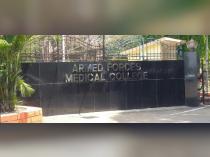Am I eligible to apply for AFMC BSc Nursing next year?
I (18, female) passed my Class 12 with a compartment, and my final percentage after the compartment exam is 71. I will appear for NEET and the AIIMS BSc Nursing entrance exam in 2026. I want to know whether I can also apply for AFMC BSc Nursing, or if having a compartment will affect my eligibility.
Similar Questions for you
No, appearing in the NEET exam is not a mandatory eligibility requirement to appear for the MH BSc Nursing exam. Candidates can appear for this entrance after completing Class 12th to seek admission to government nursing colleges in the state.
Yes, it is mandatory to appear for the ToGIGE even if the candidates have appeared for the NEET exam. The ToGIGE is a part of the selection process post the NEET exam. Those aspirants who clear the NEET cutoff are only eligible to appear for this test.
Jackpot Fund 𝒍𝒐𝒂𝒏 app customer 𝒄𝒂𝒓𝒆 Number √° 86530-78173™™₹₹₹ Jackpot Fund 𝒍𝒐𝒂𝒏 app customer 𝒄𝒂𝒓𝒆 Number √° 86530-78173™™₹₹₹ Jackpot Fund 𝒍𝒐𝒂𝒏 app customer 𝒄𝒂𝒓𝒆 Number √° 86530-78173™™₹₹₹ Jackpot Fund 𝒍𝒐𝒂𝒏 app customer 𝒄𝒂𝒓𝒆 Number √° 86530-78173™™₹₹₹
Yes, qualifying the NEET entrance exam is mandatory for MBBS admission in Kerala colleges, including for both government and private quota seats, as per NMC regulations. Candidates just have to clear an entrance exam and participate in counselling process for admission.
Source: External site and may vary.
Taking an Exam? Selecting a College?
Get authentic answers from experts, students and alumni that you won't find anywhere else
Sign Up on ShikshaOn Shiksha, get access to
- 66k Colleges
- 1.2k Exams
- 681k Reviews
- 1800k Answers
